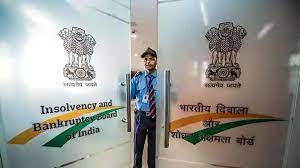Applicability of Interim moratorium u/s 96 of the IBC
Table of Contents
Applicability of Interim moratorium u/s 96 of the IBC:
In the case of Saranga Anilkumar Aggarwal vs. Bhavesh Dhirajlal Sheth & Ors., the Supreme Court addressed the applicability of the interim moratorium under Section 96 of the Insolvency and Bankruptcy Code (IBC) concerning penalties imposed by regulatory bodies. The Court clarified that such penalties do not fall within the scope of “debt” under the IBC, and therefore, the interim moratorium does not shield individuals from regulatory or penal actions.
Scope of Interim Moratorium (Section 96 of IBC): The interim moratorium aims to provide temporary relief to debtors from debt recovery actions during the insolvency resolution process. However, this protection does not extend to proceedings initiated for regulatory infractions or criminal offenses.
Key Points from the Judgment in Saranga Anilkumar Aggarwal vs. Bhavesh Dhirajlal Sheth & Ors., the Supreme Court:
- Nature of Regulatory Penalties: Penalties imposed by bodies like the National Consumer Disputes Redressal Commission (NCDRC) are distinct from debt recovery proceedings. They are punitive measures addressing violations of statutory obligations and are not considered “debts” under the IBC. The Court distinguished penalties imposed by bodies like the National Consumer Disputes Redressal Commission (NCDRC) from debt recovery proceedings, affirming that such penalties serve a punitive and regulatory function rather than being financial obligations recoverable as debts.
- Punitive Actions & Criminal Proceedings: The judgment reaffirms that the interim moratorium under Section 96 does not shield individuals from criminal proceedings or punitive actions initiated by regulatory bodies.
- Distinction Between Section 14 and Section 96 Moratoriums: While both sections provide moratoriums, Section 14 pertains to corporate debtors, and Section 96 applies to individual debtors. The Court emphasized that neither section offers absolute protection against all proceedings, especially those arising from regulatory or penal statutes. The Court clarified that while both sections provide certain protections, they do not grant immunity from penalties imposed under regulatory statutes.
- Proceedings Under Section 138 of the Negotiable Instruments Act vs. Section 27 of the Consumer Protection Act: The Court differentiated between these proceedings, noting that while Section 138 deals with cheque dishonor (a criminal offense), Section 27 addresses non-compliance with consumer forum orders (a quasi-judicial proceeding). The interim moratorium under Section 96 does not bar actions under Section 27 of the Consumer Protection Act.
- Judicial Precedents: The Court referred to previous judgments to reinforce that the IBC’s objective is to resolve insolvency and bankruptcy issues and not to provide a refuge from penalties imposed for statutory violations.
- Objective of the IBC: The IBC is designed to balance the interests of all stakeholders and ensure the efficient resolution of insolvency. It is not intended to nullify obligations arising under other regulatory statutes.
Conclusion: Supreme Court’s Interpretation of Section 96 of the IBC
The Supreme Court’s judgment clarifies that the interim moratorium under Section 96 of the Insolvency and Bankruptcy Code (IBC) does not extend to penalties arising from regulatory infractions. Such penalties are not categorized as “debts” under the IBC, and individuals cannot seek protection under the interim moratorium to evade regulatory or penal consequences.
IBC Services Offered by IFCCL Team
Services to Investors / Bidders / Corporates
-
Drafting of Resolution, Settlement, Repayment & Restructuring Plans
-
Assisting MSMEs in preparing Base Resolution Plans under the Pre-Packaged Insolvency Scheme
-
Viability assessment of Corporate Debtor’s business during CIRP
-
Support in Implementation of Resolution Plans
-
Structuring viable Restructuring Schemes
-
Guidance on provisioning by banks with reference to wilful defaulters
Support Services to Insolvency Professionals (IPs)
-
End-to-end Claims Processing
-
Managing operations of Corporate Debtor during CIRP
-
Conducting Section 29A disqualification verification
-
Preparation of RFRP and Evaluation Matrix
-
Designing Frameworks for Resolution Plans
-
Evaluation of submitted Resolution / Settlement / Repayment Plans
-
Acting as Scrutinizer for E-voting during COC meetings
Independent Advisory Services
-
Advisory on Admissibility of Claims
-
Legal validity of CoC decisions
-
Guidance on powers and duties of directors under CIRP
-
Advisory on Resolution / Settlement / Repayment Plans (including for Personal Guarantors)
-
Preparation of Due Diligence Reports on NPA/SPA accounts for banks
-
Assistance in issuance of notices and filing of applications under Section 95 (Personal Guarantors)
-
Proxy advisory services for Institutional Shareholders
**********************************************************
If this article has helped you in any way, i would appreciate if you could share/like it or leave a comment. Thank you for visiting my blog.
Legal Disclaimer:
The information / articles & any relies to the comments on this blog are provided purely for informational and educational purposes only & are purely based on my understanding / knowledge. They do noy constitute legal advice or legal opinions. The information / articles and any replies to the comments are intended but not promised or guaranteed to be current, complete, or up-to-date and should in no way be taken as a legal advice or an indication of future results. Therefore, i can not take any responsibility for the results or consequences of any attempt to use or adopt any of the information presented on this blog. You are advised not to act or rely on any information / articles contained without first seeking the advice of a practicing professional.
